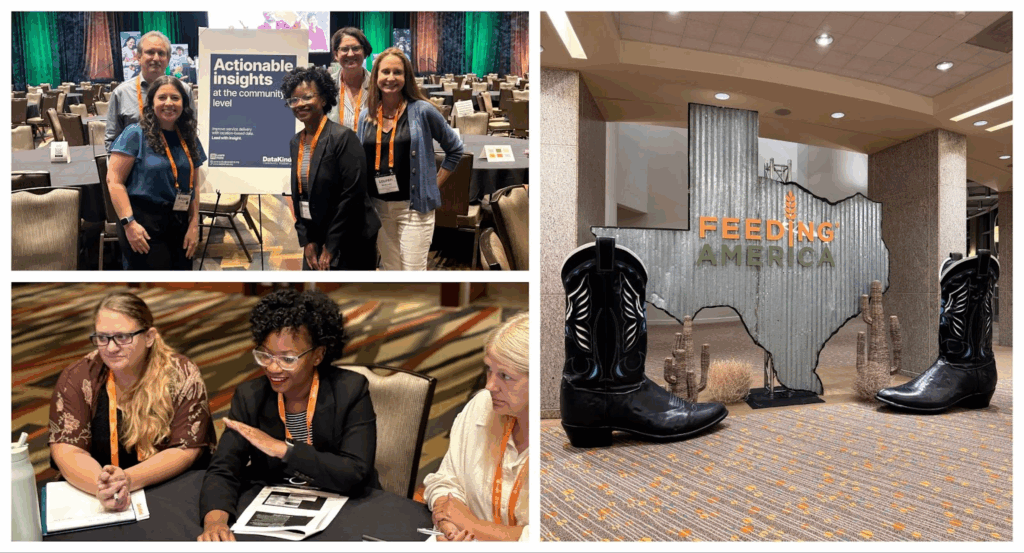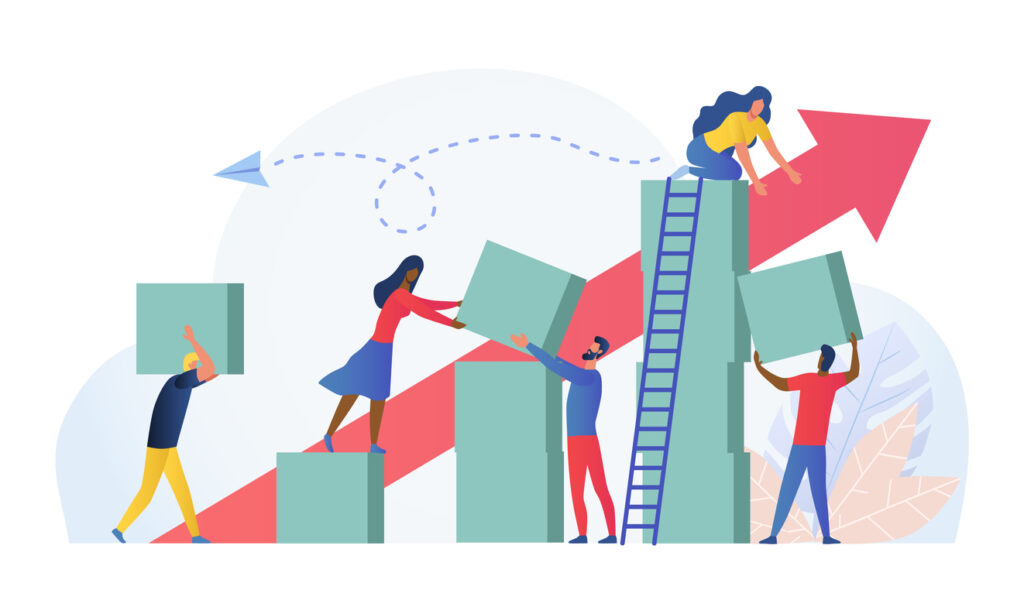Ladder is a new platform designed to make community data accessible, actionable, and equitable. Co-developed by DataKind, Second Harvest Food Bank of Central Florida, and local partners, Ladder turns fragmented local data into clear insights to help service providers, policymakers, public administrators, and local organizations identify high-need areas, target outreach, provide services, strengthen partnerships, and advocate effectively. Supported by Google.org, with catalytic philanthropic support from long-standing partner Mastercard Center for Inclusive Growth as well as Digital Harbor Foundation, JASKY Foundation, and Central Florida Foundation, Ladder is already in use nationwide, empowering communities to transform data into real-world impact.
Across the U.S., communities are facing complex, interconnected challenges – food insecurity, housing instability, health disparities, unemployment, and more. Local leaders are working every day to address these needs, but the data that could guide solutions is too often siloed, incomplete, or out of reach.
Ladder changes that. Co-developed by DataKind in partnership with Second Harvest Food Bank of Central Florida and Health and Hunger Task Force of Central Florida, and supported by Google.org, Ladder is a new platform designed to make community data accessible, actionable, and equitable.
It puts place-based data directly into the hands of those closest to the work, empowering service providers, policymakers, and administrators to collectively uncover needs, target resources, strengthen partnerships, and advocate with confidence. Already in use by health and housing leaders across the country, Ladder is helping communities turn fragmented data into practical insights that drive impact.
Co-Designed with Communities, for Communities
Economic mobility is shaped by more than one factor. Ladder was built with this complexity in mind. Its roots trace back to DataKind’s first Discovery Day in Central Florida, where food insecurity emerged as an urgent challenge alongside broader needs in housing and health. The project advanced at a DataDive event, where volunteer data scientists worked hand-in-hand with local leaders to explore potential solutions.
From there, the idea moved into deep co-design with Second Harvest and Health and Hunger Task Force, expanding to include input from cross-sector stakeholders. The result: a scalable platform that surfaces insights aligned with real community priorities – whether you’re a seasoned analyst or new to data.
What Ladder Delivers
Ladder was built with four core benefits at its center:
- Pinpoint access gaps and community assets: Identify where challenges like food insecurity, housing instability, or health disparities are most acute.
- Target outreach effectively: Focus efforts on specific populations with tailored programs.
- Advocate with confidence: Use local data to strengthen funding requests and inform policy.
- Strengthen partnerships: Share insights across sectors and teams to align strategies and resources.
Ladder is free to use, designed with global access principles so that communities everywhere can benefit. It not only makes trusted local data easier to access, but also supports teaming and collaboration, a long-standing pain point for many service providers. Organizations can even upload and analyze their own data alongside existing community datasets, unlocking deeper insights and more coordinated action.
You can see Ladder in action through our demo and watch how it was featured in DataKind’s session at NYC Open Data Week to explore how accessible, actionable data can power community impact.
From Insight to Impact
Ladder is already helping communities turn data into action:
- Nutrition support in Central Florida: Food banks and health leaders are pinpointing where food insecurity and poor health outcomes overlap, supporting innovative approaches like “Food is Medicine” and targeting outreach where it matters most.
- Housing in California: With Enterprise Community Partners, community groups are exploring local data to strengthen housing stability strategies.
- Community services in New York City: Community actors leading economic, legal, and health services have been trained to use Ladder to better understand the neighborhoods they serve and to target direct resources where they are most needed.
- SONA Conference with Feeding America: Co-designed with Second Harvest, Ladder has been so impactful that they brought it to the inaugural Sourcing, Operations and Neighbor Access (SONA) Conference with DataKind, where it was featured in a session on how accessible, place-based data can strengthen collaboration and equity across sectors.

DataKind and Second Harvest co-hosted a Network Café session at Feeding America’s SONA Conference, giving leaders from across the country the chance to explore Ladder firsthand and see how it identifies high-need/low-coverage areas to drive meaningful action.
Powered by Partnership



Get Started with Ladder
Together with partners across the country, DataKind is committed to expanding Ladder’s reach, so more organizations can harness the power of local data to drive meaningful, lasting impact.
- Sign up today: ladderhub.org
- Explore the demo: watch here
- Connect with us: DataKind will be sharing more about Ladder at upcoming events, including:
- Independent Sector’s National Summit (October 27–29 in Atlanta, GA)
- Technology Association of Grant Makers (November 9-12 in Atlanta, GA)
- National League of Cities – City Summit (November 20-22 in Salt Lake City, UT)
Ladder was made possible by the support of Google.org, with catalytic philanthropic support from the Mastercard Center for Inclusive Growth, Digital Harbor Foundation, JASKY Foundation, and Central Florida Foundation, and the contributions of volunteer data scientists, community leaders, and local organizations who shaped its development.
Header image above courtesy of iStock/Rudzhan Nagiev.
Join the DataKind movement.
- Interested in supporting our work? Donate here.
- Interested in sponsoring a project? Partner with us.
- Interested in subscribing to our newsletter? Sign up.



